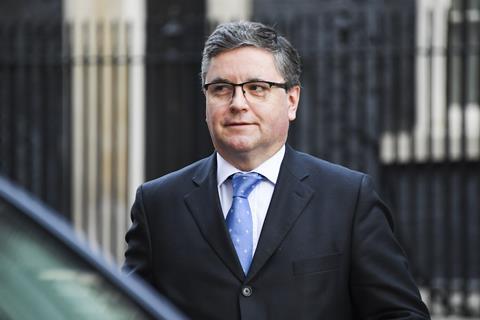The lord chancellor is to revoke a controversial fixed fee regime for immigration and asylum appeals work after one of the country’s biggest legal aid firms commenced judicial review proceedings.
The Civil Legal Aid (Remuneration) (Amendment) (Coronavirus) Regulations 2020, which came into force in June, introduced a £627 fixed fee.
Duncan Lewis served a letter before action on the lord chancellor challenging the lawfulness of the regulations and issued judicial review proceedings last month. The firm said the lord chancellor failed to consult lawfully before making the regulations and failed to gather the information reasonably required to make a proper decision. The firm said its evidence demonstrated the heightened risks faced by providers under the amendment regulations and calculated projected losses in the region of £50,000 or 1,000 hours of unpaid work over two years.
In a major development, the firm announced yesterday that the lord chancellor will revoke the regulations.

It said: 'On 4 August, the lord chancellor wrote to the claimants accepting that the making of the amendment regulations was unlawful on the basis that the consultation had been inadequate and that he had failed to satisfy his duty of inquiry. He therefore decided to revoke the amendment regulations and to put in place a temporary fee regime which will allow providers to undertake work under the online procedure in the knowledge that they will be remunerated at hourly rates.'
The lord chancellor's decision has been widely welcomed.
Law Society president Simon Davis said half of immigration appeals are successful, which is 'clear evidence of how important it is that people have recourse to the tribunal to challenge Home Office decisions that have a profound impact on their future'.
Amanda Pinto QC, chair of the Bar Council, said the Ministry of Justice had made a 'commonsense decision'. She added that the lord chancellor's willingness to listen to representative bodies and other organisations' concerns 'is a positive sign and shows what a collective and collaborative effort can achieve'.
After the Young Legal Aid Lawyers group began a 'Prayer for Legal Aid' campaign, Labour tabled a parliamentary 'prayer' to annul the reforms and shadow legal aid minister Karl Turner raised concerns in the House of Commons. Turner told the Gazette: 'I’m pleased that the government have seen sense and are withdrawing their changes, but it should not have taken a nearly three-month campaign and legal challenges for them to do the right thing.'
The ministry has promised a full consultation on the fee changes before they are finalised next year.
Commenting on the latest development, a spokesperson for the MoJ said: 'We have taken on board concerns from the sector and have decided not to replace the fee system for online asylum and immigration appeals. It is the right thing to do while we set out our next steps to ensure a fair and proportionate fee scheme for this area of work shortly.'
Duncan Lewis’s team comprised Toufique Hossain, Jeremy Bloom and Simon Robinson, who instructed Chris Buttler and Eleanor Mitchell of Matrix Chambers, and Ali Bandegani of Garden Court Chambers.



























14 Readers' comments